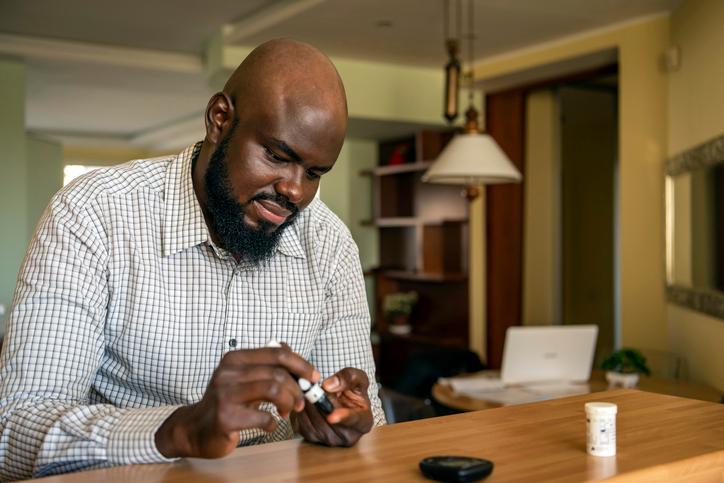
In this world of fast food, sedentary lifestyles, and growing rates of obesity, type 2 diabetes is more prevalent than ever. In 2018, 34.2 million Americans, or 10.5% of the population, had diabetes. Of those, 26.8 million were diagnosed, and 7.3 million were undiagnosed.1 By 2030 it is predicted that globally more than 500 million people will have diabetes.2 However, it is estimated that at least 90% of type 2 diabetes cases are preventable.2 Here are a few prevention tips:
One of the most crucial components to preventing type 2 diabetes is eating a healthy, diverse, and well-balanced diet based around whole and fresh foods. 87.5% of diagnosed diabetics in the United States are overweight or obese.2 Eating a well-rounded diet can help you maintain a healthy weight, therefore helping to prevent diabetes. For more information on eating a well-balanced diet, check out our blog post Diversifying Your Plate.
Along with healthy eating, living an active and mindful lifestyle is the other most important component to preventing type 2 diabetes. The Surgeon General recommends adults get 2 hours and 30 minutes of moderate-intensity exercise every week. Examples of moderate-intensity exercise include brisk walking, bicycling, jogging, swimming, and more.
However, it’s not only your physical health that needs to be maintained. Our continuing theme here at AFSPA is “Mental Wellness Leads to Better Physical Health.” Maintaining mental health is critical to your overall quality of life, and in both the prevention and management of diabetes.2 Stress, anxiety, and depression have been connected to increased risk of type 2 diabetes.2 In addition, those with type 2 diabetes are more likely to suffer from these mental health conditions.2
Meditation is an excellent way to practice mindfulness and maintain your mental health. You can also combine maintaining your mental and physical health with activities such as yoga or tai chi. Going on a nature walk is another example of an activity that can help clear your mind and alleviate stress while requiring physical exertion.
AFSPA encourages all members to live an active and mindful lifestyle. To help you achieve this, AFSPA offers many wellness discounts. Please see our New Year, Newer, Healthier YOU! blog post detailing these discounts.
Sleep is a requirement of human function. However, it’s not just about the number of hours of sleep you’re getting, it’s also about the quality of sleep. The quality of your sleep determines overall restfulness, relaxation and restoration, and the proper functioning of the circulatory, digestive, endocrine, immune, and nervous systems.2 It is recommended that adults get between 7 and 9 hours of sleep per night. Generally, getting less than 5 hours of sleep per night, regardless of the quality of sleep, or having abnormal, inconsistent, or deprived sleeping patterns greatly increases one’s risk of developing type 2 diabetes.2
Smoking is another modifiable risk factor for type 2 diabetes. Smokers are 30 to 40 percent more likely to develop type 2 diabetes than nonsmokers.3 To add, high levels of nicotine can lessen the effectiveness of insulin, requiring smokers to need more insulin to regulate blood sugar levels.3 By quitting or not smoking you can help lower your risk of getting type 2 diabetes.
The Foreign Service Benefit Plan (FSBP), offers online coaching for smoking cessation through its Digital Coach program which helps create an individualized plan for successful behavior change. FSBP also offers a Tobacco Cessation/E-cigarettes program provided through health coaching that offers two quit attempts through telephone counseling and the option to obtain medication.
FSBP provides many programs to help prevent the onset of diabetes and help manage the condition if you have it:
·????????Mediterranean Wellness Program
·????????Health Coaching Program
·????????Digital Coach Programs
·????????Pre-Diabetic Alert Program
·????????Livongo – remote diabetes monitoring program
Controlling Metabolic Syndrome/Prediabetes and Controlling A1c levels for members with diabetes is part of our Simple Steps to Living Well Together Program’s Healthy Action. The Plan will reach out to diabetic members and ask that your provider submit your A1c laboratory results. Your A1c laboratory results must be less than 8% during the calendar year for you to earn a $75 wellness incentive. A1c laboratory result documentation must be submitted by December 1 and mailed to:
Aenta
C/O FEHB QM
4400 NW Loop 410, Suite 101
San Antonio, TX 78229